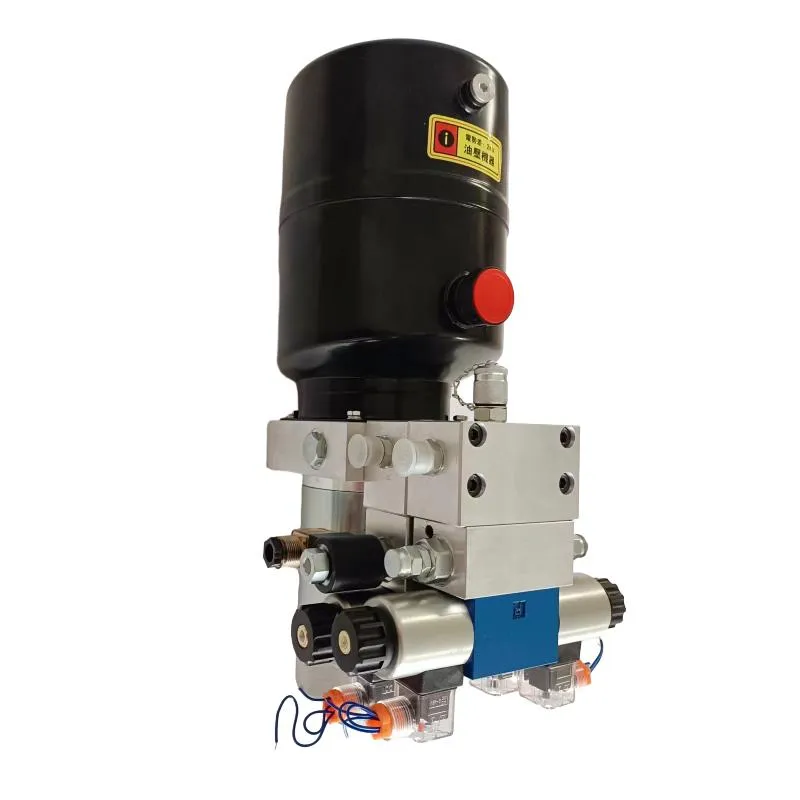Nov . 11, 2024 05:22 Back to list
Lightweight Carbon Fiber Hydraulic Cylinders for Enhanced Performance and Durability
The Rise of Carbon Fiber Hydraulic Cylinders Innovations in Engineering
In recent years, the engineering industry has witnessed a significant transformation with the introduction of advanced materials in the manufacturing of hydraulic cylinders. One of the most notable developments is the use of carbon fiber, a material renowned for its exceptional strength-to-weight ratio and durability. Carbon fiber hydraulic cylinders are quickly becoming an essential component in various applications, from aerospace to automotive, thanks to their lightweight nature and enhanced performance characteristics.
The Advantages of Carbon Fiber
Carbon fiber composites have emerged as a favored material in high-performance applications. When compared to traditional materials such as steel and aluminum, carbon fiber offers several advantages that make it an attractive choice for hydraulic cylinder construction. One of its foremost characteristics is its remarkable strength. Carbon fiber components can withstand high pressures while maintaining structural integrity, making them ideal for hydraulic systems that operate under extreme conditions.
Another significant benefit of carbon fiber is its lightweight properties. Traditional metal cylinders can be considerably heavy, which can lead to increased energy consumption and reduced efficiency in machines and vehicles. In contrast, carbon fiber hydraulic cylinders can be up to 70% lighter than their metal counterparts. This reduction in weight not only improves overall energy efficiency but also enhances the ease of handling and installation.
Additionally, carbon fiber exhibits excellent resistance to corrosion and fatigue. Hydraulic systems are often exposed to harsh environments and fluids, which can lead to wear and tear on conventional materials. Carbon fiber's resilience to such conditions ensures that hydraulic cylinders maintain their performance and lifespan, resulting in lower maintenance costs and increased reliability.
Applications Across Industries
The versatility of carbon fiber hydraulic cylinders opens up a myriad of applications across various industries. In the aerospace sector, where weight savings are critical, manufacturers are increasingly utilizing carbon fiber cylinders in landing gear systems, control surfaces, and cargo handling equipment. These components not only enhance the performance of the aircraft but also contribute to improved fuel efficiency, a crucial factor in the highly competitive aviation market.
carbon fiber hydraulic cylinder products

In the automotive industry, carbon fiber hydraulic cylinders are being integrated into high-performance vehicles, where reducing weight is essential for achieving optimal speed and handling. These advancements help engineers design more efficient systems that can handle the increased demands of modern vehicles, including hybrid and electric models that require advanced hydraulic solutions.
Furthermore, carbon fiber hydraulic cylinders are making their mark in construction and robotics. The construction industry demands robust and reliable equipment, and the use of carbon fiber can improve the performance of hydraulic machinery, such as excavators and cranes. In the field of robotics, where precision and strength are paramount, incorporating these advanced materials allows for the development of lightweight yet powerful robotic actuators.
The Future of Carbon Fiber Hydraulic Cylinders
As technology advances, the manufacturing processes for carbon fiber components continue to evolve, making it more accessible and cost-effective for various applications. With ongoing research and innovations in composite technology, the future of carbon fiber hydraulic cylinders looks promising. Manufacturers are exploring new methods for production that could decrease costs while maintaining or even enhancing the material's properties.
Moreover, as companies and industries strive to achieve greater sustainability, carbon fiber materials are being developed with eco-friendly processes, further reducing their environmental impact during production and throughout their lifecycle. This shift towards sustainable practices aligns with the broader industry goal of reducing carbon footprints and promoting responsible manufacturing.
Conclusion
The advent of carbon fiber hydraulic cylinders marks a pivotal moment in engineering and manufacturing, heralding a new era of lightweight, high-performance solutions. With their exceptional strength, reduced weight, and resistance to environmental challenges, carbon fiber cylinders are set to become the standard in various industries. As technology continues to advance, the integration of carbon fiber into hydraulic systems will likely lead to even more innovative applications and improvements in efficiency, reliability, and sustainability. Embracing this material presents a remarkable opportunity for engineers and manufacturers alike to redefine the future of hydraulic systems.
-
1.5 Ton Flipping Oil Cylinder 70/82-40-217-720-Hebei Shenghan Hydraulic Machinery|Precision Hydraulic Cylinder,Custom Hydraulic Solutions
NewsAug.29,2025
-
1.5 Ton Flipping Oil Cylinder 70/82-40-217-720 | Hebei Shenghan Hydraulic Machinery Co., Ltd.
NewsAug.29,2025
-
High-Precision [90/105-50-180-480] Industrial Component | Durable & Reliable
NewsAug.27,2025
-
High-Performance Set of 50/60-45-290 471 | Durable & Reliable Components
NewsAug.26,2025
-
Efficient Pallet Truck Power Units - Reliable Hydraulic Systems
NewsAug.25,2025
-
Premium Set of 50/60-45-290 471 Parts | High Performance
NewsAug.24,2025
